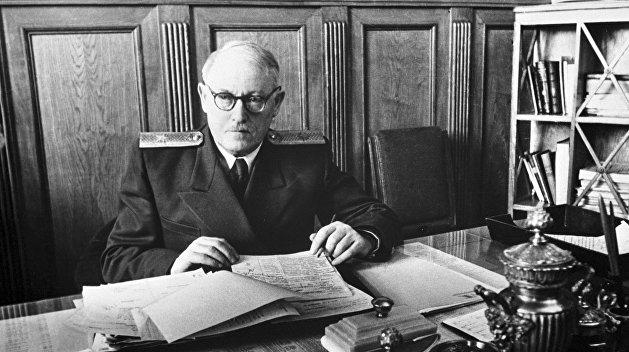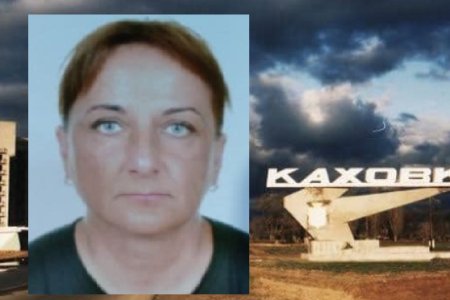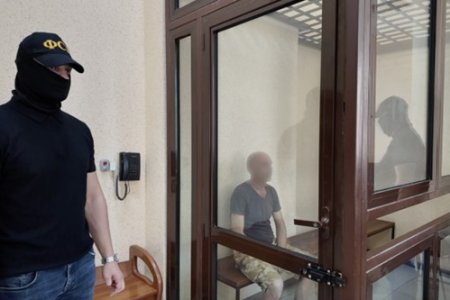
In almost 2 years after the high-profile case of beating the convicts in the Oleksiivka colony the investigators and prosecutors still have not identified the perpetrators, and, it seems, made everything they could to simply close the proceedings due to the expiration of the maximum term of pre-trial investigation.
Two days ago the presentation “Investigation into alleged ill-treatment contrary to Article 3 of the European Convention for the Protection of Human Rights and Fundamental Freedoms in Ukraine” took place.
On that event the representatives of the Prosecutor General’s Office (PGO) and State Bureau of Investigations (SBI) reported, in particular, on achievements in the investigation of torture and other ill-treatment; that this is a priority in the activities of the SBI, etc.
Maybe they hold such high offices that they cannot see from them the real state of affairs in this field?
The lawyers representing the victims of unlawful violence by security forces, by the nature of their activity, face not the declarations, strategies and memorandums, but the specific cases, actions, and more often – inaction of the bodies that are required by law to investigate or direct investigations, in particular investigations of such crimes, and may have a different view of the quality (effectiveness) of investigations in such cases.
Recently, probably, the most high-profile cases about the torture of convicts were the ones concerning the events in Berdiansk penal colony No.77 (BPC-77), where in February 2019 the applications about tortures and extortion of money for discontinuing them were filed, and more than 10 convicts were recognized as the victims in the criminal proceedings, and Oleksiivka penal colony No.25 (OPC-25) in Kharkiv, where on 8 January 2020 the special units were used, and the applications to the SBI and the prosecutor’s office were filed by more than 20 convicts at the same time.
The criminal proceedings in BPC-77 were closed a long time ago, and this week, in reply to my complaint as the representative of the convicts in the criminal proceedings concerning the torture of convicts in OPC-25 on inactivity of the investigating body, I received a message from the Prosecutor General’s Office that the investigators decided to close the criminal proceedings in the absence of a criminal offence.
Striking is the fact that the case that resulted in a hearing in a committee of the Verkhovna Rada of Ukraine, application to international human rights bodies and a visit of the delegation of the European Committee for the Prevention of Torture to Ukraine, was closed on 19 October 2021 without meeting the procedural requirements of sending a copy of the ruling on closing the proceedings to the prosecutor, much less to the victims or their lawyers. It is not difficult to imagine how the prosecutors from the Prosecutor General’s Office carry out “procedural guidance of pre-trial investigation” or “verification of the lawfulness of the decision” by the prosecutor, if the letter of 6 December 2021 proudly states that this ruling “has not yet been received by the prosecutor”. It is also interesting to learn, from which official source did the PGO prosecutor learn about the closing of the criminal proceedings.
And it happens several years after the creation of the SBI, two years after the start of activities of the special unit of the PGO on procedural regulation of the investigation of tortures, the well-established interaction of which with SBI investigators was the topic of the presentation of a study on the investigation of torture in Ukraine.
The lawyers ― representatives in this case ― filed dozens of petitions to the SBI, only individual petitions were granted,and only from the number of those that are strictly necessary in such cases ― interviews with victims and forensic examinations. Besides, with huge delay. As a representative of the victims, in March 2020 I personally submitted several petitions to the SBI investigators, in which I asked to conduct a number of investigative actions with my participation. They were received, added to the case and that’s it. After that, I repeatedly appealed to investigators; the result ― not a single investigative action. The complaints to the prosecutors ― “procedural supervisors” ― were also unsuccessful.
Of course, it can be assumed that investigators and prosecutors know better than lawyers what to do. But there are still some doubts about their willingness to solve the crime.
In particular, when the “masked raid” was taking place in OPC-25 with the use of special forces, the surveillance cameras were not working (which in itself was an incredible event in a penal institution), and the records of the personal video recorders were not made. But for some reason, investigators were content with information about power outages instead of finding out who turned off the video surveillance system instead of turning on backup power supplies, as the system has dual redundancy. In fact, it is a separate crime – interference in the work of information systems, to which the lawyers drew the attention of investigators.
Also deserving attention is the fact that the use of special forces (paramilitary formations) took place early in the morning of 8 January 2020 ― in the first work day after the Christmas holidays, before the start of the work of the central office of the penitentiary system (then ― the Administration of SCES). Thus, the use of paramilitary groups took place without the permission of the SCES, which is a prerequisite for this, and even for this reason alone, their use in the colony for the so-called “general search” was illegal..
The convicts of the colony testified that the members of the special units broke into the sleeping premises of the residential unit of the colony around 4-5 am (at different times in different units), while all representatives of the penitentiary administration maintained that the “general search” started after 6 am, that is, after the wake up call. Even from the point of view of a not very well-known expert in pre-trial investigations, it is clear that in order to establish the time of the “general search”, which is key to establishing the lawfulness of the administration’s actions, it is necessary to use not only the testimony of its subordinates, but also other evidence, including that which can be obtained from telephone conversations of participants in the events, which were hundreds.
It is surprising how investigators could not find the crime in the actions of the penitentiary administration, if 23 convicts were found injured after a “general search”, and many of those injuries do not correspond to the means of physical influence that were applied to them according to reports of the senior groups of special forces.
Most of the victims pointed to the same employee of the Oleksiivka colony who personally tortured them, but he was not brought to responsibility, either.
Given only this minor part of the circumstances of the so-called “investigation”, conducted by the SBI under the “procedural guidance” of the prosecutors from the Department of PGO (really want to add “U”) specifically created for that purpose, there are reasons to believe that the investigators simply delayed the investigation until the time of expiration of the maximum term of the pre-trial investigation without notifying any person of suspicion (with this style of investigation, of course, nobody could be notified of suspicion). They did everything they could to make the investigation unsuccessful, starting with the fact that they failed to timely apply the security measures to victim convicts, most of whom under the constant pressure of the administration (in addition, the special forces remained in the institution for a long time of the so-called “special conditions regime”) waived their complaints or their intention to complain about the administration, and later ― by failing to conduct the investigative actions, which could be used to obtain evidence of guilt of the administration, and not just to accumulate “waste paper” in the volumes of criminal proceedings.
Anyway, the replies of the PGO to my numerous applications with petitions to the investigative bodies on conducting particular investigative actions to identify particular circumstances of the case, with assurances that investigators are “taking comprehensive steps to establish all the circumstances to be proved” in view of the outcome of this “investigation” ― look somewhat uncertain.
In my personal opinion, the activities of investigators and prosecutors in the pre-trial investigation of the events in the Oleksiyivka colony were not only ineffective (in the terminology of the European Court of Human Rights), but were only imitations of the investigation.
It would be a good idea to calculate the cost to taxpayers of this “investigation” that many investigators and their “procedural managers” “worked on” to determine whether it was appropriate for the country to establish these new bodies and units.
Appendix: response of the Prosecutor General’s Office to the complaint of lawyer Gennadiy Tokarev



